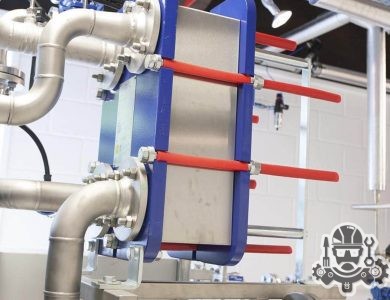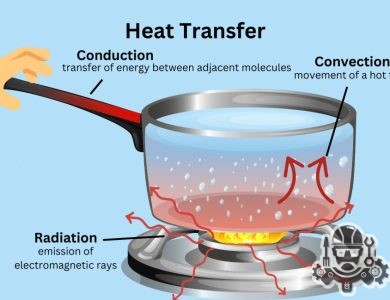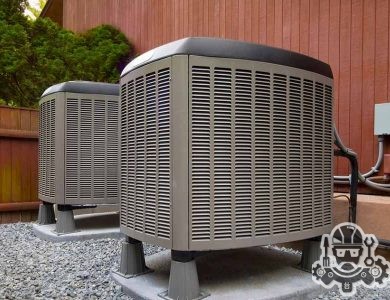Calculations
Category for engineering calculations
-
Dec- 2023 -11 December
Air – Thermophysical Properties
Air is a mixture of gases, primarily consisting of nitrogen (about 78% by volume) and oxygen (about 21% by volume), with trace amounts of other gases such as argon, carbon dioxide, and various inert gases. The thermophysical properties of air vary with temperature and pressure. Here are some important thermophysical properties of dry air at standard atmospheric pressure (101.325 kPa…
Read More » -
Jul- 2023 -9 July
Viscosity of Water
Definition Of Viscosity Viscosity is a property of fluids that measures their resistance to flow. It is essentially a measure of a fluid’s internal friction or stickiness. In simpler terms, it refers to how easily a fluid can flow or how resistant it is to flowing. The concept of viscosity is applicable to various fluids, including gases and liquids, but…
Read More » -
3 July
Boosting Energy Efficiency with Heat Recovery Systems
Heat recovery systems have emerged as a vital component in today’s energy-conscious world. As the demand for energy continues to rise, the need for efficient and sustainable solutions becomes increasingly critical. This article delves into the concept of heat recovery systems, their mechanics, applications, and the environmental benefits they offer. The Science behind Heat Recovery: Heat recovery systems are designed…
Read More » -
2 July
Conduction, Convection, and Radiation Heat Transfer
What Is Heat Transfer? Heat transfer is the process of transferring thermal energy from one object or substance to another. It occurs through three main modes: conduction, convection, and radiation. Conduction is the transfer of heat through direct contact between particles in a solid material. Convection is the transfer of heat through the movement of fluids, either liquids or gases.…
Read More » -
Jun- 2023 -29 June
Air Composition and Molecular Weight
Air is a mixture of gases that primarily consists of nitrogen, oxygen, carbon dioxide, and traces of other gases. Air composition of air can vary slightly depending on factors such as location, altitude, and pollution levels. Here is the approximate composition of dry air: Nitrogen (N2): Nitrogen makes up the largest portion of dry air, accounting for about 78% of…
Read More » -
25 June
Everything You Need to Know About Heat-Pump Efficiency
Introduction To Heat-Pump Technology Are you in need of an energy-efficient heating and cooling system for your home or business? Look no further than heat-pump technology. Heat-pump technology works by extracting heat from the air, ground, or water and transferring it to your desired location. This process is extremely efficient, as it doesn’t rely on the burning of fossil fuels…
Read More » -
23 June
The History Of Space Exploration
Space exploration has been a fascinating topic for humans for centuries. It is the study of outer space beyond Earth’s atmosphere and includes the exploration of planets, moons, comets, and asteroids. The history of space exploration dates back to ancient times, when humans looked up at the stars and wondered about the vast and mysterious universe beyond their reach. The…
Read More » -
21 June
Drone Technology & Types Of Drones
Drones, also known as unmanned aerial vehicles (UAVs), are aircraft designed to be operated without human pilots onboard. These flying machines can be controlled remotely from the ground or even autonomously using software-controlled flight plans. The technology behind drones is rapidly advancing, and they are being increasingly used in a variety of industries. In this blog post, we will give…
Read More » -
20 June
Understanding The Basics Of Energy Calculations
Energy is a fundamental concept in physics. Understanding how energy works is critical to making accurate energy calculations. Energy calculations help to evaluate energy consumption, identify energy efficiency measures, and monitor energy savings. The following paragraphs will provide an overview of energy calculations and the key parameters involved in calculating energy consumption. Energy calculations involve determining the amount of energy…
Read More »








